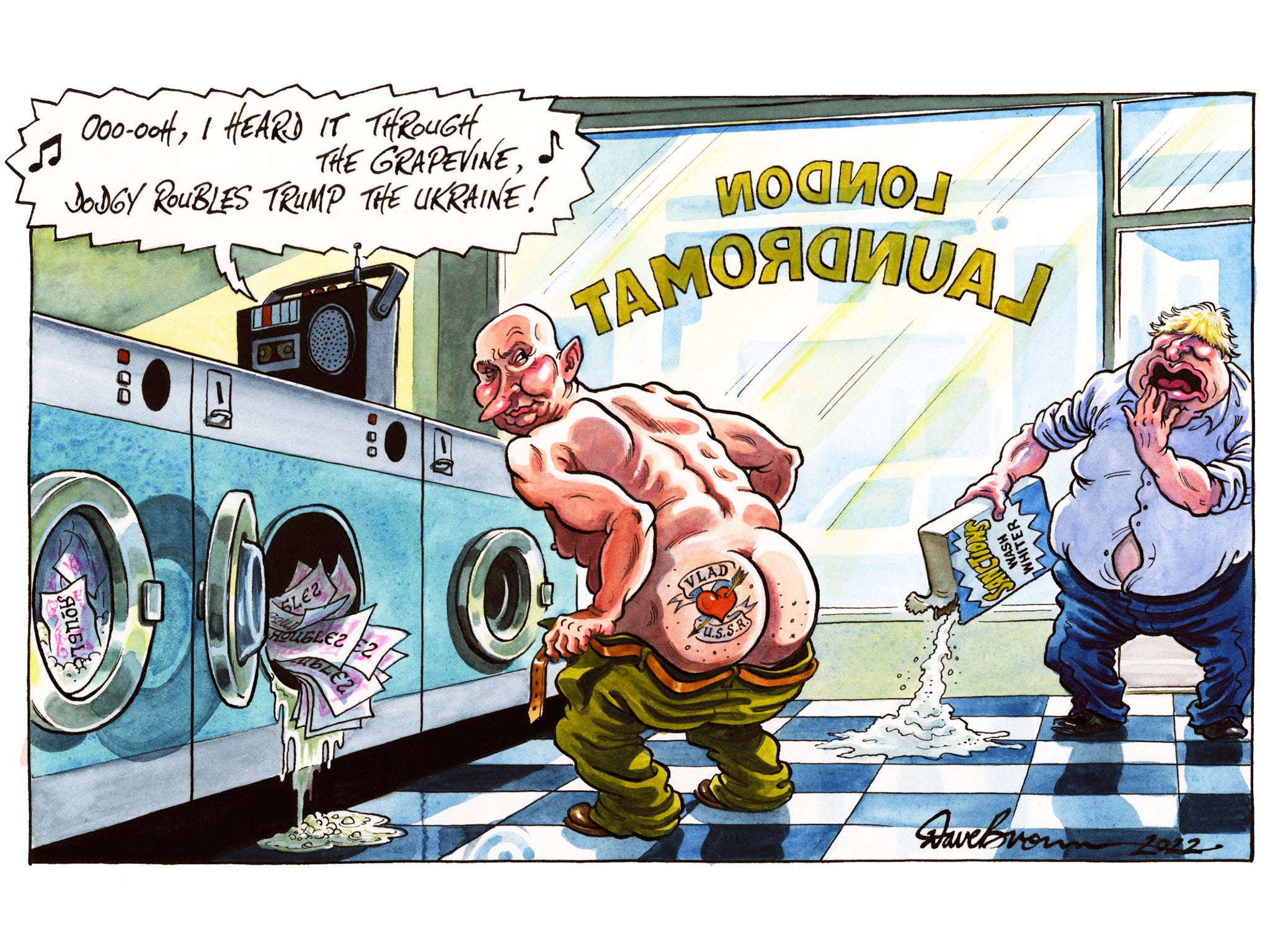As Boris Johnson announced the sanctions against the Putin regime on Tuesday in the House of Commons, he almost seemed to surprise himself by the feebleness of the words he read out. That confusion was not made much clearer when he defended the package to Sir Keir Starmer at Prime Minister’s Questions.
At the heart of the matter was the prime minister’s claim that further measures were being “held in reserve” in order to deter Vladimir Putin from further aggression in Ukraine. As Sir Keir said the next day: “The prime minister promised that in the event of an invasion, he would unleash a full package of sanctions. If not now, then when?”
Given that Ukraine’s allies have said that any Russian deployment in the eastern provinces of the country would amount to an infringement of its sovereignty – a toecap across the border, in Mr Johnson’s phrase – then this should be the moment for a significant response. Sir Keir was justified in saying, in effect: is this it?
Mr Johnson’s response was to say: “There is more to come.” But it remains unclear whether additional measures are conditional on Mr Putin’s behaviour, or whether they would simply be a second tranche of the initial response.
The principle of deterrence requires an amount of uncertainty about one’s adversary’s intentions, but the danger is that this lack of clarity about relatively trivial measures will be interpreted by Mr Putin as weakness.
The other assumption of deterrence theory is that the actors are rational, and the reaction of many world leaders to Mr Putin’s aggression has been to accuse the Russian president of behaving irrationally. Most of them did not go as far as Ben Wallace, the defence secretary, who told a group of soldiers that Mr Putin had “gone full tonto”. But Mr Putin’s recent speech, about the mistakes of Lenin and Stalin in allowing Ukraine to think itself a separate country from Russia, certainly gave an impression that his thinking had become untethered from reality.
On the other hand, there is a ruthless calculation to Mr Putin’s actions, as he simultaneously intimidates the Ukrainian people and tests the resolve of their allies to defend them. He has confused his opponents about where to draw the line. The arrival of Russian troops in Donetsk and Luhansk is in some ways a small advance, a “grandmother’s footstep”, as there were Russian troops in local uniform there already.
The next step would be to invade the rest of the territory claimed by the bogus republics, which is currently in the hands of Ukrainian forces. Only then might Mr Putin consider rolling his tanks to Kiev and trying to occupy the whole country.
To keep up to speed with all the latest opinions and comment sign up to our free weekly Voices Dispatches newsletter by clicking here
For a long time, it has been assumed that Mr Putin is rational enough to realise that an attempt to occupy the whole of Ukraine would be too costly in lives and resources. But that does not preclude an icy rationality about a policy of step-by-step encroachment on Ukrainian territory, and of harassment and cyberwar against the remaining Ukrainian state.
Such a campaign makes some sense in view of Mr Putin’s domestic power base, built on Russian nationalism and a set of external enemies conjured into being by propaganda. But even that attempt to subjugate Ukraine without a full invasion would impose such costs on the Russian state and the Russian people that it could not be sustained in the longer term.
The Russian economy is already in trouble, and this aggressive adventure is an attempt to distract the Russian people from that. It is the duty of the allies of the Ukrainian people to increase the costs to Mr Putin’s regime of its adventurism. We suspect that there is some rationality left in the Kremlin, and that it will respond when its interests are threatened. But they are not threatened by the sanctions announced so far. Ukraine’s allies should not wait to tighten the screw.




Join our commenting forum
Join thought-provoking conversations, follow other Independent readers and see their replies
Comments